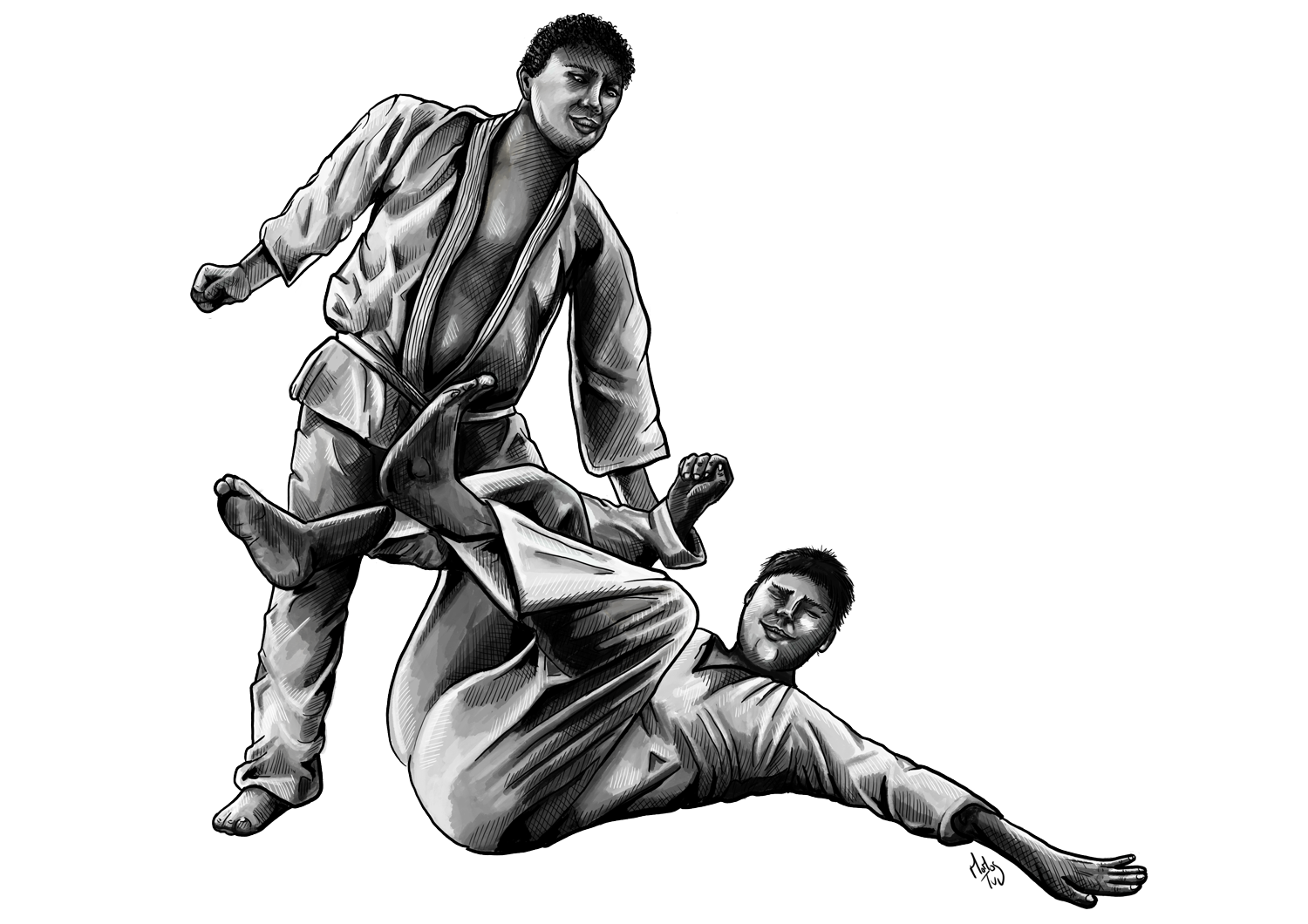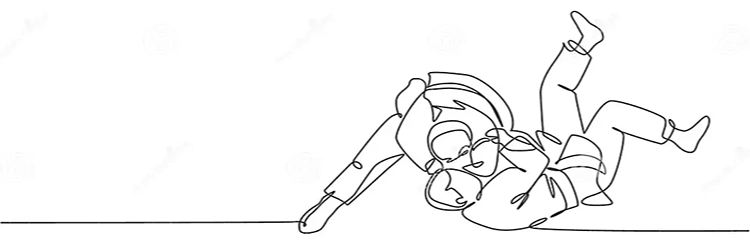
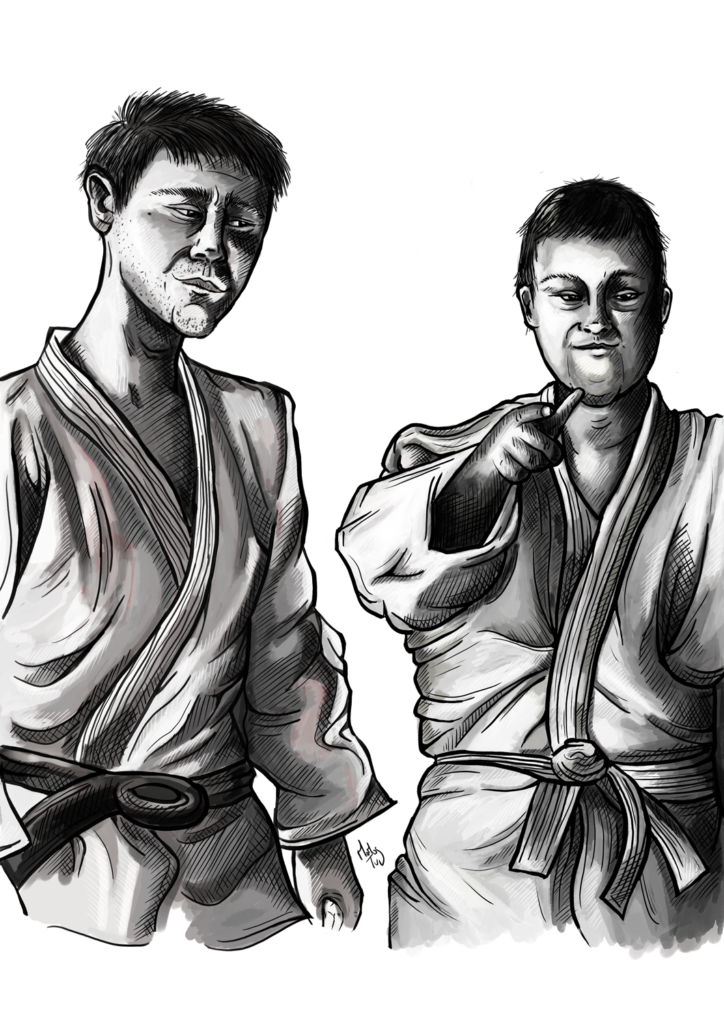
BIG EYES, TO SLANTED LOOKS.
“Ouch!”. Kadiatou’s neck then extends back, the corner of her eyes meeting my pupils. Squatting behind her, I struggle with a safety pin to slip the drawstring from her judogi‘s pants. Here, we pick our outfit from the big box, hoping to find the pearl that won’t fall down our buttocks. Kadiatou, she was not so lucky.
The door of this cramped, underground, windowless little gymnasium then swung open. Kadiatou’s eyes, bare-panties, panic. I scream. “Out boys!”. It’s the third time. The concept of intimacy, whether physical or psychological, does not yet make sense to them. Nor for certain professionals, moreover, who allow themselves a disrespect of private limits, under the pretext of a physical or mental handicap.
The end of the cord finally appears. From the top of her two little buns on her head, Kadiatou offers me her most childish smile for a 16-year-old girl. I look at her, proud in her judogi. I am too. We feel strong in this soft white fabric, ready to move mountains.
I then half open the door, the boys parade. There are all sizes, all shapes. There are well-sharpened judogis, others who fall halfway. But the determination is there, and the joy.
The heat weighs on the tense bodies. A studious silence ensues. In a circle, we look at each other. There are big eyes like slanted gazes. Well anchored on the tatami, Bastien begins the session. He has been welcoming young people to this improvised dojo for three years now.
A certified judoka, Bastien has always been convinced of the role that sport could play in the mechanisms of exclusion. For him, sport is a space of freedom in which the individual expresses himself bodily, from play to competition. The status of “athlete” then takes precedence over social status.

FROM ORDINARY SPORT, TO ADAPTED SPORT.
I frown then, in disagreement. Because of its values of justice and equality, sport should give everyone, according to their potential, the chance to assert themselves. However, when we talk about disability, the gaze is still there. Handicap disturbs. A reminder of human fragility. And we hide it, here, between the four walls of many specialized institutions, since its youngest age. Neither outside society nor entirely within it, people with disabilities are “invisible” outcasts.
Invisible, because society has created dedicated spaces, such as so-called “adapted” sport. So-called “ordinary” sport can be felt to be violent and demeaning compared to adapted sport, which is more protective. But the label remains: para judo or adapted judo is sport for “people with disabilities”.
Bastien sensed it one day when he brought a young person with Trisomy 21 to his own judo club. It stutters, it does not dare. “Shared sports practices are still very rare in the landscape, requiring a certain work of mutual acceptance and change of vision.” This is indeed a paradox that disability brings up in its confrontation with the world: attempts at integration can sometimes produce situations of exclusion, and vice versa.
“It’s not about being fair to others, but about being like the others” he slips in to me as Kadiatou and Ali chain their back rolls with disconcerting dexterity. I try it too: awkwardly, my foot in the air constantly going in the wrong direction.

FROM DISABLED TO PARASPORT, A PYRAMIDAL SYSTEM.
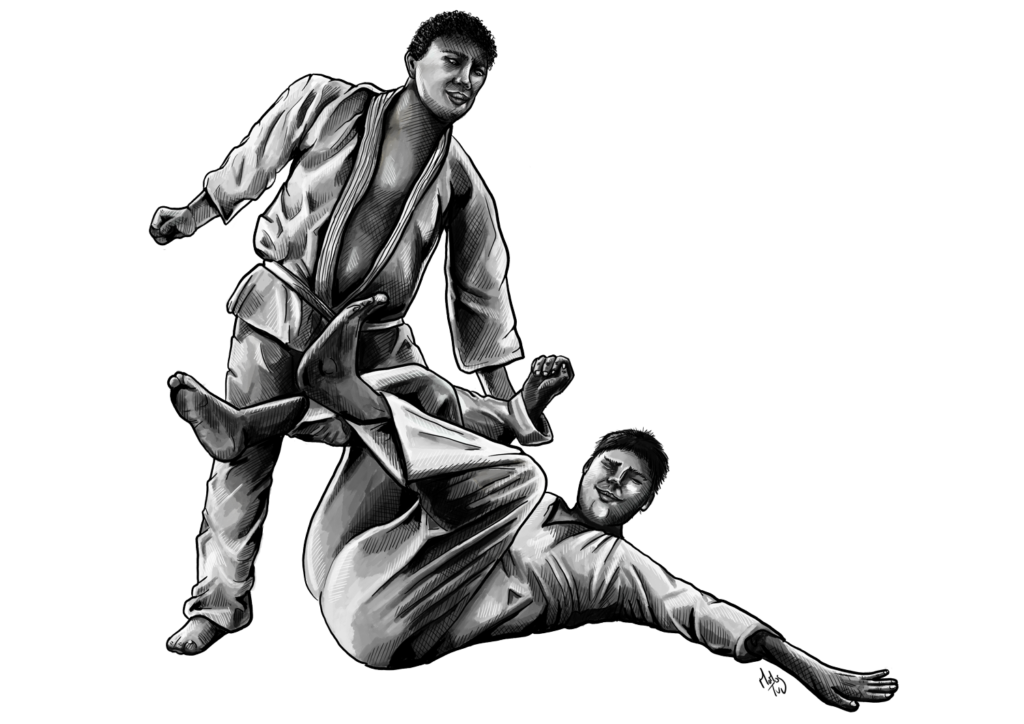
I meet Ali’s gaze, so mischievous. With his imposing stature, he impresses me. Tall, muscular, fine features, mixed and smooth skin, Ali does not skimp on bodybuilding. “A sugar-free dessert please” he regularly whispers to me in the canteen. Concerned about his diet, Ali is one of those we meet in the street, without suspecting for a single moment that aligning a sentence is not always easy.
Precisely, when sport and disability mingle, representations of basketball courts filled with wheelchairs or swift athletes with prostheses are associated. We stop – we confront ourselves – with the vision of a different body. Because sport, by its essence, involves motor skills and physicality. Only a narrowed vision then appears, that of “Disabled sport” – specific to physical and sensory disabilities – and not of “Parasport” – encompassing disabled sport and so-called “adapted” sport, for mental or psychic disabilities.
So when disability is invisible at first glance and plays out in the mind, that’s another story. An athlete with a physical disability is able to communicate about his practice: this is where the media stakes around disabled sport come into play – and its Olympic drift.
In 2021 for the Paralympics in Tokyo, only 6 athletes out of the 150 in the French delegation had a mental disability, carriers of Trisomy 21 being also excluded. The outcasts – within the outcasts Parasport then resumes the dominant pyramid model, placing at its apex the physical handicap and those whose speech is audible.

FROM TOP-LEVEL SPORT TO CLUB PRACTICE.
Even more, this model puts high-level sport in the front line. We discuss it with Bastien, whispering to me, not without sarcasm, “You have to be naive to believe that applause rewards exploits achieved by athletes and not by people with disabilities. In fact, you see, we see performance as courage, in the face of their limited condition. Not like the result of intensive daily training.” I smile then, thinking back to the punchline of Manoël Bourdenx, alias Badoo, para alpine ski athlete:
“I fought for 4 years to grab a podium in the World Cup, and the day I get there, I win a can of red bull”.
So when society shows an interest in parasport, it is for the Paralympic athlete, who endorses a “heroic” image. The societal representation of sport remains above all focused on the exaltation of performance. This makes terrible sense, when we know that Pierre De Coubertin, founder of the Olympic Games, advocated the superiority of the strong white man. Didn’t he say that “sport is the pleasure of the strong or of those who want to become strong“…
The spirit of competition induces a relative equality of chances, eliminating the weakest.
So, what about those who are not at this level? Conversely, when the media deigns to take a look at club practice, we find the same “politically correct” jargon of inclusion and social equality. Exit athletic performance. Yet it is so much more. I continue to be amazed at each session by their abilities. I have never seen them so proud, applied and thoughtful as on the tatami. And all the more so since, with them, every little detail takes on value. The burst of laughter, the gaze fixed on the flashing light, the swaying head, the twitching hand.
I then see Kadiatou fall to the ground in all serenity. Bastien makes them work on the Ushiro Ukemi, the falls.
This self-confidence, this awareness of one’s body, are two incredible energies that are built little by little.
It’s my turn, everyone is looking at me: I’ve never done it. I am scared. They encourage me. My body then slams heavily on the floor, forgetting to swing my hands.
Today, only 5.5% of people with disabilities practice a sport in a club. “And I’m not telling you the hassle of financing the purchase of judogis and finding a room. You will find suitable physical activity in establishments, but real clubs, which will consider them as athletes, are so rare”.

TOWARDS SELF-DETERMINATION.
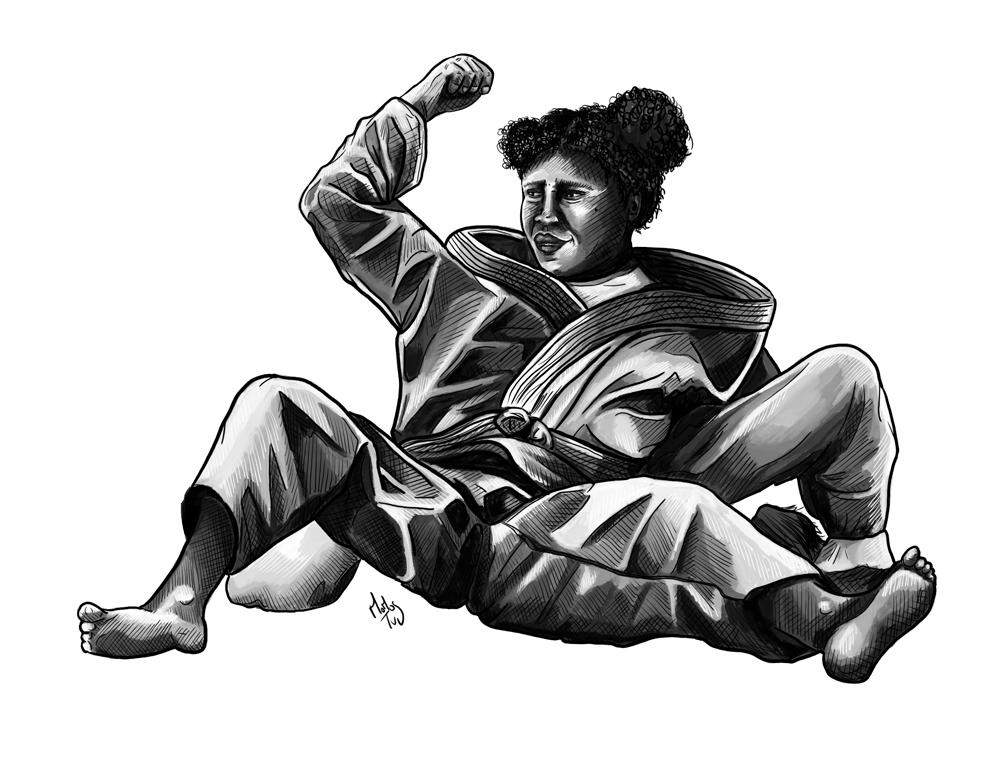
Self-censorship, difficulties of accessibility, vision of difference, the brakes are numerous. Change cannot be made without the acceptance – and this without condition – of sportsmen and women with disabilities, whether physical, sensory, mental or physical, in society. It is not a question of being juxtaposed alongside them, but of being engaged, together, in a common movement.
The broader question of dependency arises here, generated by the care system. Whether it concerns their movements, their administrative situations, their professional activities… there are many life decisions taken by so-called “strong” actors, who assume responsibility on behalf of “the weakest”. On the contrary, it would be a question of providing them with the conditions for better self-determination – by relying on appropriate means of expression -, to give them a real place in our society – and in sport.
